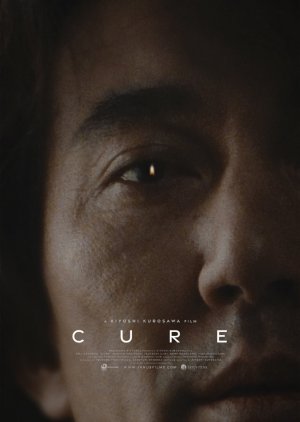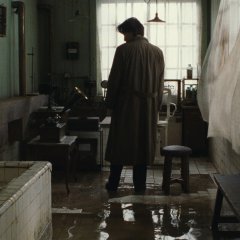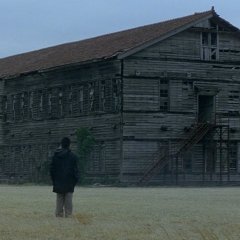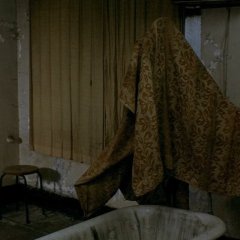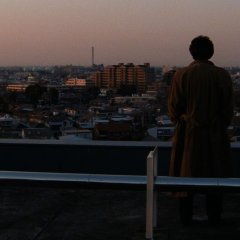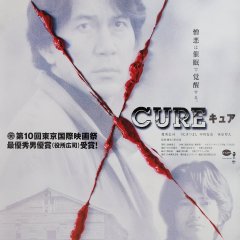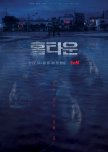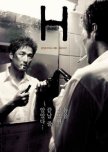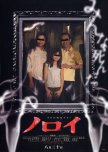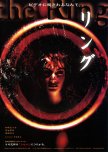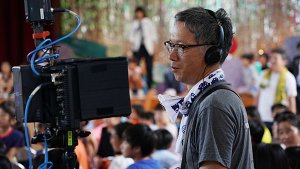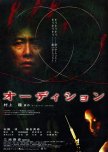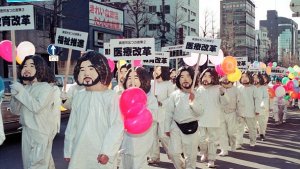 Underground Nightmares and Social Anxieties: Aum Shinrikyo on Film
Underground Nightmares and Social Anxieties: Aum Shinrikyo on Film A wave of gruesome murders is sweeping Tokyo. The only connection is a bloody X carved into the neck of each of the victims. In each case, the murderer is found near the victim and remembers nothing of the crime. Detective Takabe and psychologist Sakuma are called in to figure out the connection, but their investigation goes nowhere. An odd young man is arrested near the scene of the latest murder, who has a strange effect on everyone who comes into contact with him. Detective Takabe starts a series of interrogations to determine the man's connection with the killings. Edit Translation
- English
- Español
- Português (Brasil)
- magyar / magyar nyelv
- Native Title: キュア
- Also Known As: Kyua , The Cure
- Screenwriter & Director: Kurosawa Kiyoshi
- Genres: Thriller, Mystery, Horror, Psychological
Cast & Credits
- Yakusho Koji Main Role
- Hagiwara Masato Main Role
- Kawaya Hidetoshi[ Kakarikan #1]Support Role
- Ujiki TsuyoshiSakuma MakotoSupport Role
- Osugi RenFujiwaraSupport Role
- Hotaru YukijiroKuwano IchiroSupport Role
Reviews

This review may contain spoilers
C U R EC—URE
C—YOU'RE
SEE, YOU'RE
SEE, YOU ARE...
"Who are you? Tell me about yourself."
Kiyoshi Kurosawa's Cure is first, a procedural crime thriller, but foremost, a philosophical and psychological rumination of the societal condition. It is more arthouse and atmospheric than the usual sort of procedural thriller in mainstream cinema. It does not serve a complete and absolute answer. Rather, it gives you questions and clues which lets you think and connect the puzzle, yourself.
In the film, we comprehend that the killer perceives the detective as someone who is not cured.
"The detective or the husband? Which is the real you? Neither one is the real you. There is no real you."
The detective is filled with frustration due to his societal responsibilities. This is his prison since his choices are bounded by societal expectations and not because it completely reflects his own authentic decisions. This prison is what created and worsened the disease in his humanity. He cannot be his real self. He is not cured.
"You’ll be born again, just like me."
Perhaps, the killer wants to free the people from society by letting them truly know and express their profound fears and desires. This is how he will cure them and just like that, they will all be reborn.
It might be true that knowledge is power and to completely know ourselves can be the utmost cure to the disease of humanity and society. Though, does letting our desires and fears own us creates the perfectly authentic self? Or are we just letting ourselves be a slave to them?
In the end, the detective has become the "cured", himself. He didn't repress his fears and desires anymore, but he has become mesmerized by them. Indeed, they have become himself, completely dictating his decisions which also led him to dictate others.
Ironically, the detective has become the society that imprisoned and frustrated him for so long; thinking about what solely makes sense to him and imposing it to others believing that it's the true and ultimate way to be freed and cured.
Just like the long-time, lingering question whether hypnosis is a true science or a pseudoscience: is it really a means to cure or control? Is the detective cured or controlled? Is he curing them or controlling them?
Was this review helpful to you?

Who are you - the question we don’t have an answer to.
Realistically speaking, I understood around 80% of the movie. There are many things that are just hinted at, especially about the details of the resolutions/conclusions. Does it bother me? No. If anything, it makes me more interested in potential rewatch to see if I missed anything. The movie presents a lot of questions, but not all the answers.How much do we change and curate ourselves to match social expectations and responsibilities set by the roles we decide to take? On the other hand, is following our desires the true freedom or just another cage? Driven by desires or led by society - where is the freedom in both, where is the place for personal choices?
These are the questions I kept thinking about while watching Cure. It also reminded me that we as humans love to simplify everything - binary thinking is easier. Extreme solution to mundane problems - that’s how I saw the freedom Mamiya was spreading. Momentary freedom that led to more restraints. Because living is not as simple as always doing what others expect you to do, nor is it simply following your current needs. Forcing others to adhere to your narrow definition of freedom is not setting them free, it’s just taking the leash in your own hands and controlling them by your own standards.
Cure is a great psychological mystery that masterfully crafts the tension. The longer I watched, the more I wanted to get the answers, but by the end, I was fine with still wondering. Strangely it felt as if I was given the freedom to find my own conclusion. It’s not a typical crime movie where we want to know who did it. Rather, we desperately try to figure out why it was done. It’s slow and atmospheric.
With a script like that you need charismatic actors to pull it off. And I was blessed with Yakusho Koji’s performance as Takabe Kenichi - a detective and husband, who struggles with maintaining these two roles, slowly cracking under the pressure. Hagiwara Masato as Mamiya Kunihiko was simply terrifying. Something about that detached, but piercing presence made me feel extremely uncomfortable.
Editing and production was truly perfect. From longer and uncut scenes that created the tension, or the quick cut flashes of moments and frames, that in addition to giving important clues, served as a good indicator of the shift of perspective and the connections the main lead made.
Overall, highly recommend to all the folks who liked to be asked questions and not get conclusive answers, making your own brain do the work. Less investigation, more philosophical. Slow pace might deter some people from watching - proper watching conditions might be the key to enjoyment.
Was this review helpful to you?

